Close UP
Nichietsu Tomoiki Shienkai ~Changing Society to Create a "Tomoiki – Living Together" Society Where Young Vietnamese People Want to Continue Working~
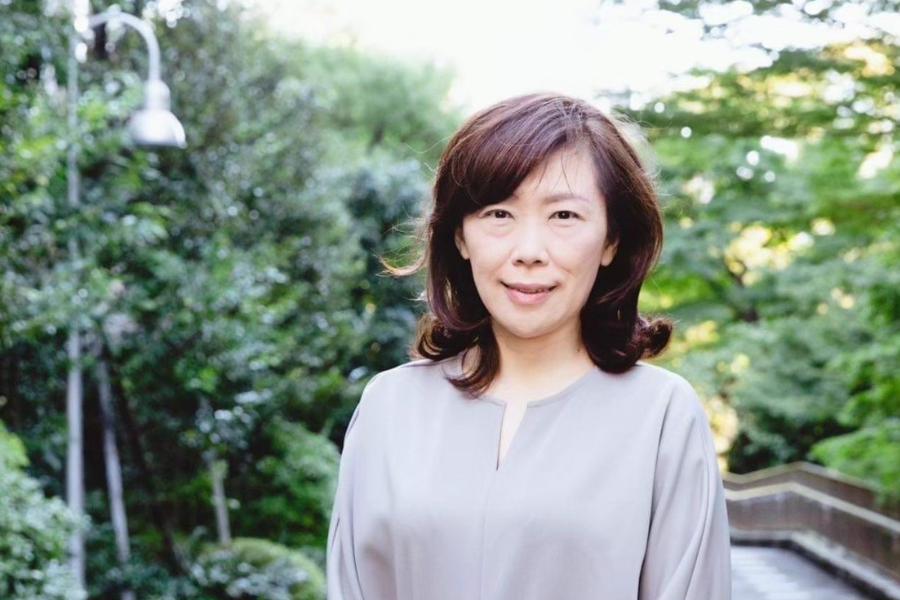
The NPO Nichietsu Tomoiki Shienkai is involved in various activities aimed at protecting the lives and human rights of Vietnamese people working in Japan. We spoke with Ms. Jiho Yoshimizu, a representative of an organization actively working to create a society in Japan where young Vietnamese people can continue to work without absconding from their workplaces or losing their lives.
We want to protect the lives and human rights of Vietnamese people living in Japan.
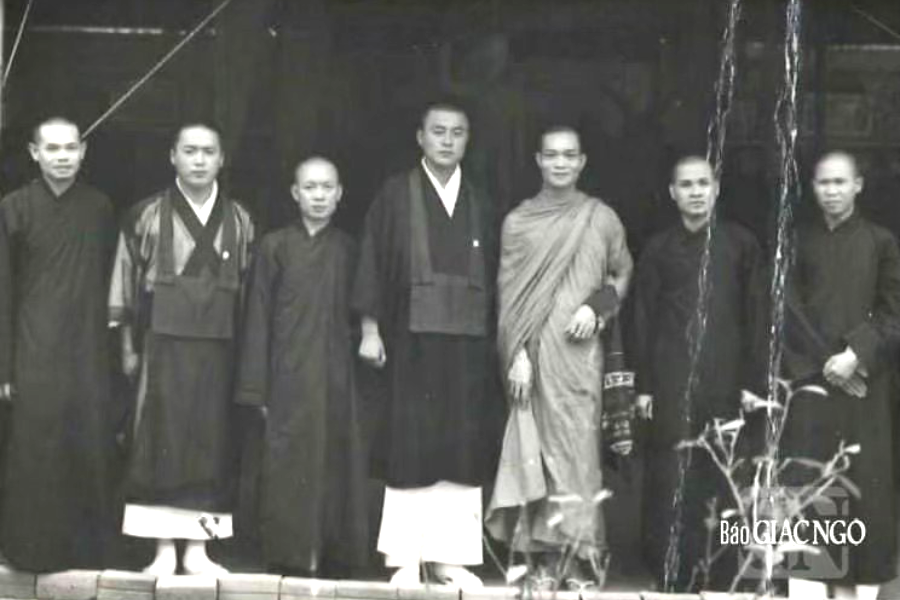
Photo Courtesy: Nichietsu Tomoiki Shienkai
Ms. Yoshimizu, the representative, says that she became involved in supporting Vietnamese people due to the influence of her father, who was a monk. "Starting around 1965, during the Vietnam War, my father acted as a guarantor to bring talented Vietnamese monks to Japan as refugees. He provided them with living support at his temple."
When the Great East Japan Earthquake struck in 2011, Ms. Yoshimizu's father, at the request of the Vietnamese Embassy, took in Vietnamese people who had lost their homes in the disaster, and provided them with living support for a month. From there, the support expanded to include not only monks but all Vietnamese people living in Japan.
"About two to three years before the COVID-19 pandemic, young Vietnamese people living in Japan, especially those who came to Japan under the technical intern training program, faced harsh working conditions and difficult living situations, which led to an increase in suicides. One technical intern left a suicide note saying, 'I was bullied at work and didn't know where to ask for help. I came (to Japan) with dreams and hopes, but I couldn't do anything for my family.' I felt that we Japanese must do something to protect the lives and human rights of Vietnamese people living in Japan, as things should not be allowed to continue this way."
To expand their activities, Ms. Yoshimizu established the NPO Nichietsu Tomoiki Shienkai in 2014. The name "Nichietsu Tomoiki Shienkai" reflects the spirit of "Living together (tomoiki)" of the Jodo sect of Buddhism. The group consists of six full-time employees, including Vietnamese and Japanese nationals, and fourteen youth members.
Firstly, we want Vietnamese people living in Japan to know that there are Japanese people who are trying to protect them.
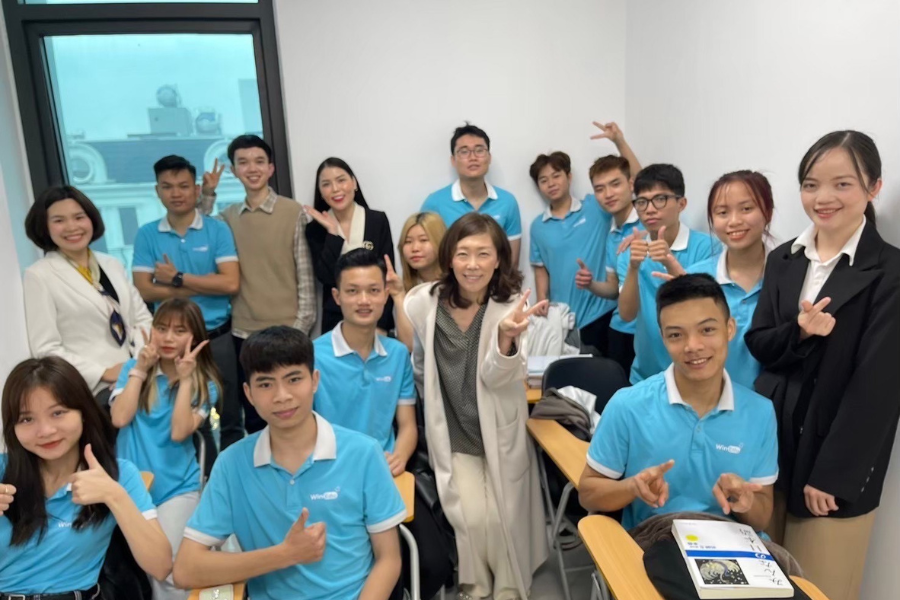
Photo Courtesy: Nichietsu Tomoiki Shienkai
The organization conducts a living support project that delivers the essential support for Vietnamese people living in Japan to survive, as well as an awareness-raising project that conveys Vietnamese culture and the voices of Vietnamese people to the Japanese people, businesses, and authorities. The living support project provides information as well as the supplies necessary for daily life. In addition, it offers a wide range of support services, such as securing employment in cooperation with companies employing or accepting technical intern trainees and supervising organizations. They also arrange for those who wish to return to Vietnam and provide Japanese language learning support.
"Among young people who come (to Japan) as technical interns, those with lower Japanese language abilities are more likely to get into trouble. For example, in Vietnamese, the words for ‘quit one's job’ and ‘take a day off’ are the same, so if you tell the supervising organization that you want to take a day off, it may be mistranslated as ‘I want to quit my job,’ and they may be forced to leave the company or be repatriated," says Ms. Yoshimizu. Nichietsu Tomoiki Shienkai often receives emergency requests for help, such as "Help me, I will be taken to the airport tomorrow."
Furthermore, since the COVID-19 pandemic began, there has been a sharp increase in the number of young people who have lost their jobs, money, and places to live. As an organization, Nichietsu Tomoiki Shienkai has taken in these young people at the temple, provided them with living support, and offered Japanese language classes as well as preparation classes for technical skills proficiency examinations to help them find new employment.
“Many people who lost their jobs and ran away reached us after hearing about our organization, and found new jobs through our support. We want Vietnamese people who are struggling in Japan to know that there are Japanese people who are trying to protect them,” says Ms. Yoshimizu.
We want to fight together and support the future that young Vietnamese people have decided on.
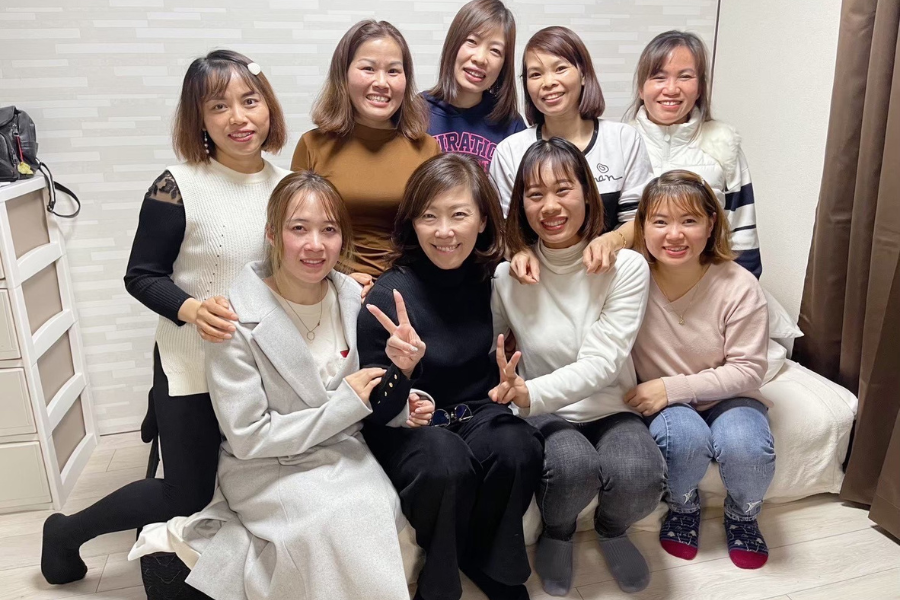
Photo Courtesy: Nichietsu Tomoiki Shienkai
"When supporting young Vietnamese people, there are various cases. We present them with their options, such as whether they want to find a new job or return to their home country, and let them decide how they ultimately want to proceed. Depending on their choice, we will fight together if necessary and support them so that they can make a living," says Ms. Yoshimizu.
Nichietsu Tomoiki Shienkai negotiates and coordinates with relevant organizations, makes policy recommendations to the government, and raises awareness of labor issues affecting young Vietnamese people. The organization supports the rights of Vietnamese people living in Japan in various ways. They also provide advice and instruction to companies that unfairly dismiss employees or fail to pay overtime wages, to improve the working environment for employees. And if the companies do not make improvements, they negotiate through unions.
"We receive more than 15,000 inquiries annually. Sixty percent of these inquiries are related to the technical intern training program, and twenty percent are related to the specified skilled work visa. The more (consultations) we handle, the more we accumulate expertise in providing support. We sincerely respond to each case, utilizing our knowledge and experience. Most companies are good, but 10 to 20 percent of them deal with their employees unfairly. We take a firm stance against such companies and do our utmost to prevent them from exploiting young people," says Ms. Yoshimizu.
We provide timely support and deliver information reliably.
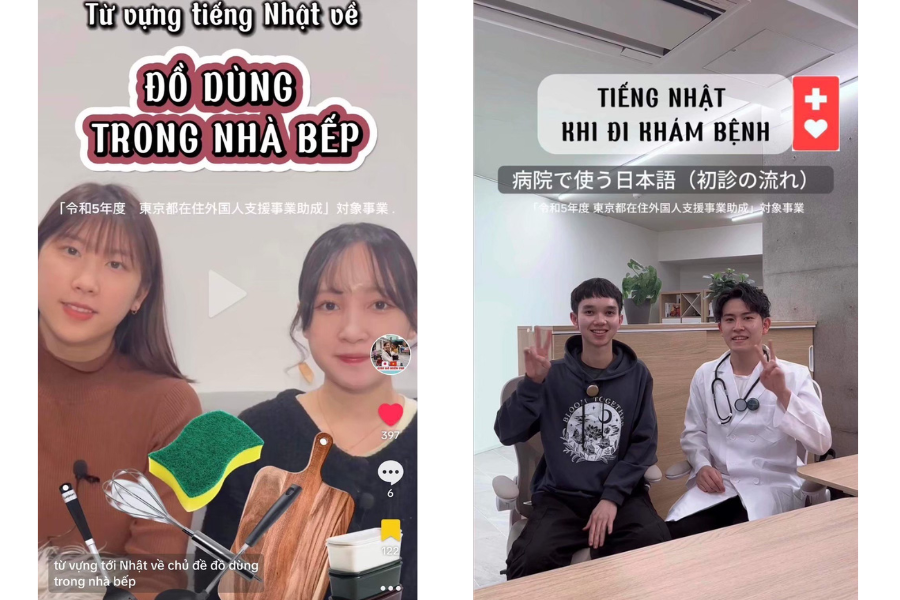
Photo Courtesy: Nichietsu Tomoiki Shienkai
Nichietsu Tomoiki Shienkai actively conducts publicity and awareness activities to connect with the maximum number of Vietnamese people in affliction, and provide them with the information they need. "No matter how good our support is, it is pointless if we do not connect with young Vietnamese people. After opening the Facebook account of Nichietsu Tomoiki Shienkai, we asked Vietnamese monks and representatives from the Vietnamese Embassy to tag our account in their posts, so that we could gain the trust of young Vietnamese people and increase our number of followers, in order to spread the word that there are Japanese people who support Vietnamese people in Japan," says Ms. Yoshimizu.
Furthermore, the organization has uploaded more than 50 videos to its TikTok account. The videos cover a wide range of topics, such as the resident registration process, how to buy Shinkansen tickets, how to request an ambulance, and useful apps for living in Japan. The Vietnamese staff members of the organization are creating videos summarizing the difficulties they have encountered in Japan, as well as the things they feel are important in providing support. Their TikTok has a huge response, with the account's followers increasing to 50,000 and some videos exceeding 500,000 views.
"Young people rarely read paper flyers. TikTok is a vital social media platform for Vietnamese people to access various information, so we thought it would be beneficial to share our information there. We believe it is important to provide support that fits the times."
We create a working environment where foreigners who have come to Japan want to continue working.
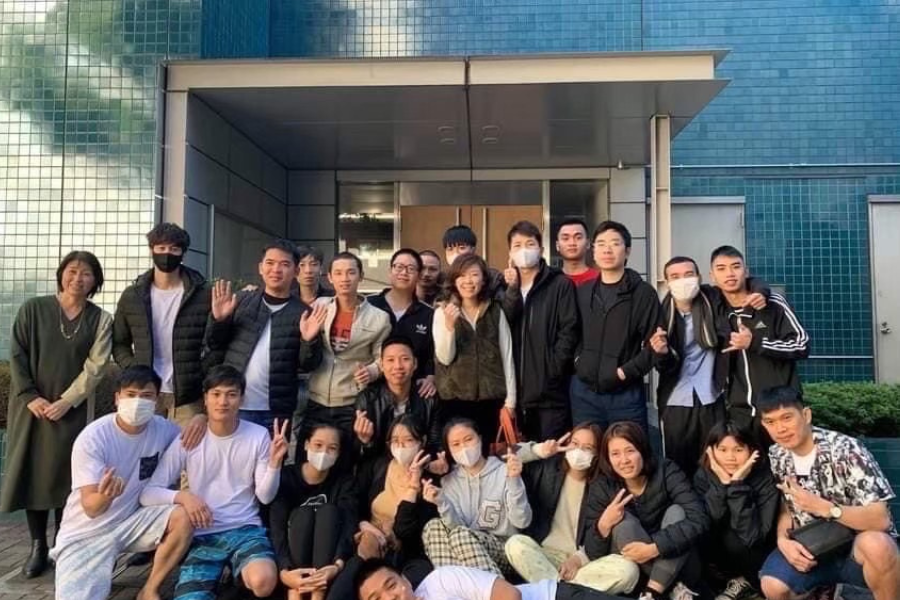
Photo Courtesy: Nichietsu Tomoiki Shienkai
In addition, Nichietsu Tomoiki Shienkai visits Vietnam once every two months to check on former technical interns and students who have returned to Vietnam from Japan, and to provide information about life in Japan to Vietnamese people who are planning to come to Japan in the future. Ms. Yoshimizu is affectionately called "mama" or "sensei (teacher)" by the Vietnamese people she has supported. When she visits Vietnam, they come to pick her up at the airport.
"They seem to think of me as their mother in Japan, and it makes me feel like I have more children (in addition to my own). I'm happy when they say ‘Thank you, mama,'" says Ms. Yoshimizu.
Ms. Yoshimizu and her team are working to improve systems and structures by providing feedback to administrators and other relevant parties, regarding the thoughts and feelings of young Vietnamese people, which they have gathered through Nichietsu Tomoiki Shienkai's support activities. They also inform relevant parties about issues with the current system. Such efforts have led to the implementation of new relief measures.
"Although there have been gradual improvements to the system, it is still lacking in some areas. The fact that some foreigners choose to abscond (from their workplace) means that people in need are not reaching out for support. We feel that this is an issue. We believe that the Organization for Technical Intern Training (OTIT) needs to create a platform, and the OTIT and other support organizations should collaborate even more in the future," says Ms. Yoshimizu.
Nichietsu Tomoiki Shienkai will continue its activities to make Japan a place where young Vietnamese people want to continue working, and where they feel that their work is worthwhile, and to create a society where we can all live together.
